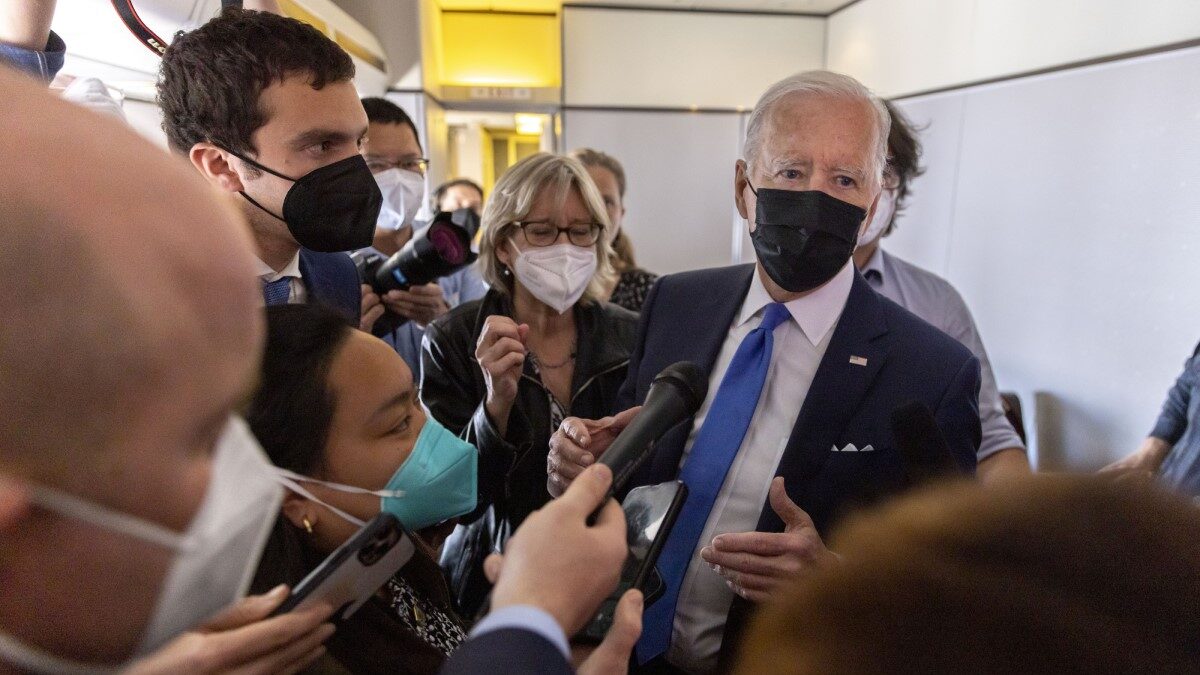In an op-ed in last week’s Wall Street Journal, President Biden’s ghostwriters outlined what the title of his column called a “plan for fighting inflation.” After reading the article, five simple words come to mind: “Hold on to your wallet.”
At best, the political messaging behind Biden’s “plan” would do little to solve Americans’ pain. More likely, it would make the problem worse. Here are the major components of his agenda.
Step 1: Change the Subject
The column began with a series of statistics to claim that “our economy faces these challenges [i.e., inflation] from a position of strength”:
In January 2021, when I took office, the recovery had stalled and Covid was out of control. In less than a year and a half, my administration’s economic and vaccination plans helped achieve the most robust recovery in modern history. The job market is the strongest since the post-World War II era, with 8.3 million new jobs, the fastest decline in unemployment on record, and millions of Americans getting jobs with better pay.
Since I took office, families have increased their savings and have less debt… The U.S. is in a better economic position than almost any country.
When taking credit for vaccine campaign birthed by the Trump administration, Biden should look to the words of Barack Obama: “You didn’t build that.” As to the rest of the statistics, it stands to reason that restarting an economy that was shut down in spring 2020 would have resulted in job growth and prosperity, regardless of the president in the White House.
More to the point: At a time voters are already abandoning Democrats in droves over inflation, telling the American people they should quit whining about sticker shock every time they visit the gas station or the grocery store because other economic measures look fine seems both presumptuous (big surprise) and politically risky.
Step 2: Pass the Buck
Homer Simpson famously ran for Sanitation Commissioner on the platform “Can’t Someone Else Do It?” The slogan mirrors whom Biden thinks should lead the charge to tame inflation:
The Federal Reserve has a primary responsibility to control inflation….
Congress could help right away by passing clean energy tax credits and investments that I have proposed….
I’ve done what I can on my own to help working families during this challenging time—and will keep acting to lower costs where I can—but now Congress needs to act too.
So much for “The Buck Stops Here.”
In fairness, Biden has a point about the Federal Reserve’s responsibilities. He also has a point in highlighting the fact that his predecessor wrongly badgered the Federal Reserve in 2019 to cut interest rates, which would have overheated the economy while stoking inflation.
But, after re-nominating Jay Powell to a second term as Federal Reserve Board chairman, Biden shouldn’t escape responsibility either. Former Fed Chairman Ben Bernanke recently admitted that Powell and the Fed made a “mistake” by not acting sooner to curb inflation. So why on earth did Biden re-nominate—and for that matter, why did the Senate re-confirm—one of the key people who helped cause the inflation problem in the first place?
Step 3: Tax and Spend
Biden also claims other solutions will curb inflation: “We can lower the cost of child and elder care to help parents get back to work.” He dare not say the name, but this and other references in the column allude to the $5 trillion Build Back Bankrupt bill.
But that legislation would raise, not lower, inflation, on two levels. First, subsidizing programs like elder care and health insurance only encourages companies to raise their prices to capitalize on government subsidies.
Second, the legislation the House passed last November used 10 years’ worth of tax increases to pay for spending programs that would last for only a few years. Because the bill front-loaded all its spending, the Congressional Budget Office and Joint Committee on Taxation estimated the legislation would increase the deficit by roughly $276 billion this fiscal year, and another $217 billion next year—additional “stimulus” that would only stoke the inflation fires further.
At a time when fighting inflation—to say nothing of our $30 trillion in debt—means Washington should cut federal spending, Biden keeps pushing his multi-trillion-dollar spending spree. That fact alone illustrates why Biden’s “plan” will not succeed any time soon.









